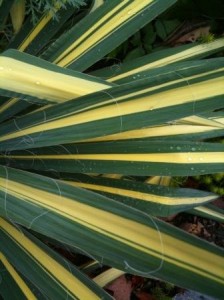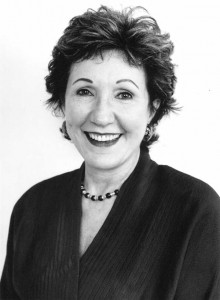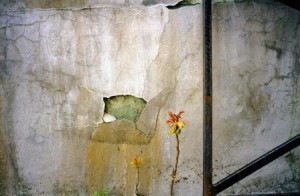Friday
Community Articles, World, otherIntensity in a Bold Land
 Cynthia Kneen expands on her experience teaching Shambhala dharma in South Africa. During her three months there, she gave three public talks, three radio interviews, Shambhala Guide training, an introductory weekend based on her book Awake Mind, Open Heart, a dharma art evening to a private group of Cape Town artists and activists, and Shambhala Training Levels I, IV, V, Windhorse and Drala.
Cynthia Kneen expands on her experience teaching Shambhala dharma in South Africa. During her three months there, she gave three public talks, three radio interviews, Shambhala Guide training, an introductory weekend based on her book Awake Mind, Open Heart, a dharma art evening to a private group of Cape Town artists and activists, and Shambhala Training Levels I, IV, V, Windhorse and Drala.
Click here for all of Cynthia’s blog entries and reflections from South Africa.
I have just returned from three months in South Africa, teaching Buddhist meditation and Shambhala’s social vision in Cape Town and Johannesburg, and sharing an evening of performance art with Cape Town artists and human rights activists. It was a vibrant time, heightened by South Africa’s hosting of the World Cup soccer games. As a student of the Buddha, I aspire to step gracefully from dream to dream. Yet I miss the dream of South Africa already. I miss the edginess of it.
South Africans remind me this is a third world country. “Things just don’t work here.” This is deceptive because flair and sophistication are palpable, in pockets, anyway. Equally, just being and opening my senses here seems raw and miraculous, with a constant cutting sense. So far, I have moved from pocket of privilege to pocket of privilege, and a sense of life and death is in the pockets, and in between. Everywhere vigor, beauty, and danger reach out to grab me. This is apparently a common experience. All the South Africans I’ve met so far know this quality of Africa and their national intensity and history. They say they find it boring to visit countries like the United States, Australia, New Zealand. These countries “don’t have the edge” their homeland has. I like the edge here, too. It’s tough, and powerful to me.
At my first public talk a large light crashed down from the ceiling, brushed by my hair, missed me just barely, and shattered on the floor. Rain had leaked from the roof into the globe, and it exploded when the light turned on. There I sat, pooled by water with shattered glass around me. Yet on looking up, it was the beauty of the hall and its old and magnificent glowing wood that captured me. Everything is immediate like this, breathtakingly beautiful and edgy. I first stayed in a cottage behind a home──exquisite, Mediterranean, lots of flowers, a pool, two guard dogs. It took disarming a security system, which my cottage was outside of anyway, and unlocking four locked doors, for me to get to the street. I feel beauty and danger are inches away. Not feet or yards, but inches.
This morning I’m feeling timid, reading the newspapers, feeling danger and promise everywhere. Politics are intense, very complex. Daily newspapers remind the reader that Zimbabwe fell into chaos. It’s uncertain what will happen here. I have moved my living quarters to a safer place. “If you are sensible, my dear, there is no safer place than this!” My very British friend pronounces this triumphantly, lending me her flat as she flies off to France. She adds, “I do take the precaution of ensuring that, when I go far, there are people ahead of me and behind. But once you have taken sensible steps, you can just relax and enjoy yourself!” The flat is beautiful and has a wall of windows on the 12th floor of an oceanfront building. Every morning I watch the sun rise over the sea.
I went to a performance of The Train Driver, a play by the South African, Athol Fugard, who also wrote Tut-si. It is a moving monologue of his own love and grief for South Africa, almost his own personal Cry, the Beloved Country. The play was held in District 6 where sixty thousand people had their homes, markets and meeting places bulldozed during the apartheid years. People say no developer will go near it now. The new theater sits in this lonely spot and is named after Fugard.
Yesterday I made a new friend whose knees had been blown out by gunshots during an armed break-in at her home in Johannesburg. She was almost apologetic. “Everyone has an experience like this, everyone. I usually don’t talk about it. Besides, then we moved, and it saved my marriage.” Another friend’s brother was shot dead at a home break-in, and she, too, loves this country. Someone else tells me she was raped, “but I’m okay, I had wonderful support. I’m more concerned about those with no support where it happens repeatedly.” People seem to want to protect me from their stories, but I’m interested.
South Africans are hungry for truth that illuminates, is real and courageous, penetrates, in conversation, politics, art and life. This may be because, as one South African explained it to me, “If you have any instinct at all beyond physical, psychological and spiritual materialism, if you have even the smallest hint of subtlety, then the only way you can survive the daily challenges is to open up your heart.”
Last week I was homesick. Tonight I came in from fish and chips on a Cape Town pier, driving with a friend around the ever-present mountain which is dark and inhumane, seeing the night lights sparkling along the bay, hearing the sea’s winter sounds where forty foot waves come during storms. And I felt overwhelmingly homesick suddenly for Africa, missing it already, terrible pangs of loss realizing that soon I will leave. How can this be?! Last week I laid awake all night, for the first time intensely wishing I were already home, “Please please, I don’t want to be here anymore, I want to go home.” And now, I feel the pending loss of this setting and these friends, touched to be here in Africa, touched to be able simply to experience how the world here works, to communicate and learn.
How can I explain the beauty to you? It is ineffable. The moon is now in its smallest sliver, but it is still bigger than I am used to, closer, larger, more luminous, lying on its side near Cape Town’s largest mountain, growing “from the wrong side” out, so close it is almost lying down on top of the town and sea. I want to weep at the beauty, immediacy, intensity, insubstantiality of it all.
I’ve been teaching meditation, giving public programs, Shambhala Trainings, meditation instruction, radio interviews, a round table discussion at the University of Cape Town philosophy department, and a performance of monologues I’ve been writing to a mixed group of artists, authors, ex-Parliamentarians and “serious freedom fighters.” A mixed group here means coloreds, blacks, whites, women and men. People say, “Oh thank you, so lucid, articulate, authentic, brave.” I wouldn’t know──I’m flying by instinct.
I have visited the wine country and farmlands. I have seen Evita se Perron, the political satirist whom even extremists love, laughing at their history. I have had fish and chips by the sea, seen wild ostrich, baboons and penguins up close, been to a game park in the bush where I saw lions, elephants, giraffe, springbok, wildebeasts, even three rhinos sleeping peacefully under a tree as dawn came up. These are the creatures most in danger now from criminal poachers, even in the park. And I came within inches of seeing a soccer match in Johannesburg, but I missed.
Cape Town and Johannesburg are very different. The improbable mountains in Cape Town come right up to the sea, with a small area for the glamour of the city to show itself. Brutality is close, yet the land and sea trump everything. In Johannesburg it’s different. Human dramas with their glamour, power, brutality and beauty seem more triumphant. The violence is greater. The largest human-created forest in the world is in Johannesburg, and spectacularly beautiful trees saturate its avenues. Yet even here the land asserts itself. Rugged hills, “mine dumps,” stick up throughout the city. The city was built on gold mines and its office buildings, full of glitter, sit on empty mine caverns, full of toxic water, that are slowly caving in.
Everyone here is intense, or so it seems to me. Maybe some are not, but I am guessing this is rare. I think they have no choice. The land is bold and doesn’t care. It is just what it is, raw, blunt, beautiful, immensely powerful. The same is true for South Africa’s history. The country has been through so much the last fifty years that everyone is raw. Even the ones who hate being here seem determined to stay. This morning a friend described South Africans like this. “If you have any uncertainty at all, your skin is shiny and thin like finely polished metal because you care so much. All of us are raw.”
A few weeks ago, there was a rugby match between a South African team and one from New Zealand. Rugby is the Afrikaans sport, a stand-up sport. Stand up. Let yourself be counted for the whities. I read an article in the Wall Street Journal once that had a color photo of five rugby players from South Africa with their arms joined, wearing short shorts, running at the camera. The caption said that they trained by tackling wildebeests. People here laugh at me when I tell them this and say it isn’t true, but the photo persuaded me. If you’ve ever seen a picture of South African rugby players, their thighs are wide as a barrel, incredibly muscular and strong.
This rugby match was held in Soweto because the normal sports venues were being prepped for the World Cup soccer games. So the whities game was played in the heart of Soweto township. This is unheard of, a first, a breakthrough. During the apartheid years blacks were forcibly relocated into Soweto township so that whites could take Johannesburg for themselves and put up gates. Now blacks from Soweto township were going to a rugby game, rooting for South Africa to beat New Zealand. And whities with painted faces held their traditional pre- and post-game parties, called braai, in Soweto’s parking lot. Some parties were even hosted in friendly fashion in front of the township’s metal shacks. The South African who told me this was moved to tears. Hopes are high for a good society, and then go low again. No one knows how things will go. “It’s a mess,” people say, “an absolute mess.”
________________________
 Cynthia Kneen is the author of Awake Mind, Open Heart: The Power of Courage & Dignity in Everyday Life (Avalon, 2002), and the CD course, Shambhala Warrior Training (Sounds True, 1996). Cynthia has taught Shambhala Buddhist programs throughout the mandala for over thirty years and is currently writing a book on business and dharma. Visit her website at www.cynthiakneen.com
Cynthia Kneen is the author of Awake Mind, Open Heart: The Power of Courage & Dignity in Everyday Life (Avalon, 2002), and the CD course, Shambhala Warrior Training (Sounds True, 1996). Cynthia has taught Shambhala Buddhist programs throughout the mandala for over thirty years and is currently writing a book on business and dharma. Visit her website at www.cynthiakneen.com





